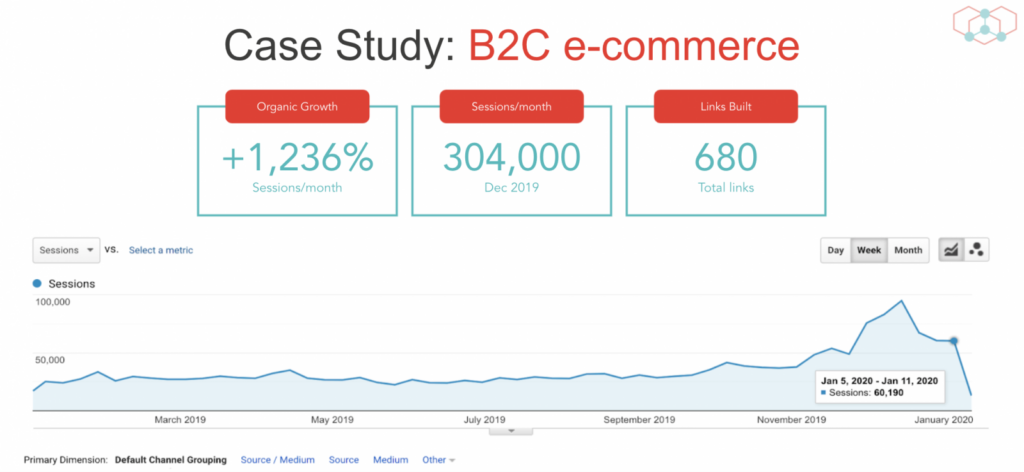How to identify site quality for link building
Site quality is one of the things that most people get misunderstand. If you get this wrong, it can be harmful to your site. A site that has no value means it affects your SEO performance badly. Then you wouldn’t be able to drive traffic to your site. In this tutorial, we’re going to discuss how to identify site quality for link building. This tutorial is based on the search engine journal webinar which was conducted by the CEO and founder of PureLinq, Kevin Rowe. He mentioned website elements that need to identify site quality for link building.
Key Elements
You need to consider the following elements for link building when reviewing the site.
- Content – Both written and visual content for main site content and blogs etc.
- Admin – Whether they are doing advertising and if yes, then what are the policies?
- Link Profile – What appears like the links leading to the website?
- Authorship – Who is the one responsible for the both main content and support content?
- Reputation – Whether the authorship have any reputation or not?
- Technical – How can users find and engage with the site or content?
PureLinq helped a B2C eCommerce client to increase their monthly organic traffic by 1,236% through this framework.

Google’s Advice on Links
Google and its representatives mentioned the negative impact of link strategies on search rankings many times. Some of Google’s advice about this topic are given below.
- Google Search Console’s help documentation on link schemes
- Google’s search quality guidelines
- Google representatives (John Mueller etc. )
There are some places in Google’s guidelines on link schemes that are not clear. When you build links it can not interpret your intent. You might use natural, high-quality links for improving the readers’ experience. As well as your purpose might be getting a higher rank in organic search. Google has given a warning against guest post links. Google’s John Mueller mentioned that they could catch and devalue guest post links.
Some SEO experts were skeptical of Mueller’s recent declarations that links in guest posts should be nofollowed because they thought they were too general.
Google’s search quality raters guidelines give a clear idea about what they think about content quality. It won’t guide your link-building. In 2018, Google’s Ben Gomes said as given below during an interview with CNBC.
“The rater suggestions represent the path we want the search algorithm to take. Although they don’t explain how the algorithm ranks results, they do, in essence, show what it ought to do.“
Usually, SEO professionals don’t look for Google’s reply for all the answers. Therefore you can come up with your own interpretations.
Metrics and Quality
If you wanna identify site quality and make link-building successful, you should know about both metrics and quality.
Metrics
We can know how people measure and report link-building activities from Aira’s State of Link Building survey reports. Some metrics of top SEO tools are also included.
- Moz’s Domain Authority
- Ahrefs’ Domain Rating
- Moz’s Page Authority
- Majestic’s Trust Flow
- SEMrush’s Authority Score
- Majestic’s Citation Flow
- Verve’s Link Score
Your own manual research is not replaced by looking at these metrics. You may need a deeper analysis of your prospects.
Quality
There is a section on Overall Page Quality Rating in Google’s search quality raters guidelines.

It will help you to cover,
- Content purpose
- Content depth
- Credible sources
PureLinq developed their own scoring system of PureGrade to identify site quality. Because of the lack of quality metrics for link building. It impacts on organic rankings in a positive way. It is based on the manual review of a site’s content and automated footprints.
Analyze a Site: Keys for a Great Assessment
You need to look at the following elements.
- Content
- Admin
- Link Profile
- Authorship
- Reputation
- Technical
Make sure to follow the bellow things when you doing the process.
- Weight Each Element – There are some aspects of the site which are more important than others.
- Build a Footprint – You need to examine multiple elements and then decide if the site’s quality.
Some key things you need to follow when doing an assessment are given below.
Content
- Commercial Links – Links to money pages not tagged with nofollow or sponsor
- Navigation – Is it way too general for a blog or not?
- No-no Keywords – Keywords related to porn, gambling, and payday loans.
- Frequency – Posts that are old or infrequent.
Admin
- About Us – Links to money pages
- Admin Pages – Guest posts, advertising
- Info – Phone, email, address
Avoid that kind of websites.
Link Profile
- Excessive Links – Too many links pointing to one page
- Low Authority – Use DR or DA to find this.
- Non-Relevant Links – Links that don’t make sense for the page
Authorship
- Names and Bylines – Is the byline set to the site name or admin
- Author Page – Is there non-existent information about the author?
- Foreign – Whether the author from your target country or not?
You need to be more stringent on your review for Your Money or Your Life (YMYL) pages. And also you need to find website authors and find out whether they are reputable or not.
Reputation
- Presence – Whether the website has a social media presence or not?
- Following – What are the types of accounts are following the brand?
- Engagement – Well they have engagement or not?
Technical
- Indexed – Does the website exist in Google’s index with many homepages?
- Geo – The focus of the audience’s country.
- Page Engagement – Does the site have layouts, ads, and links within a page?
All these analyses are important to identify site quality for link building.
Suggested Articles
Frequently Asked Questions
What are quality links?
A high-quality website is the source of a quality link, often known as a high-quality link. One of the foundational elements of a successful SEO strategy are backlinks. They are crucial for boosting your site’s authority and generating organic traffic. They are also regarded as one of the top three ranking factors by search engines.
https://www.overthetopseo.com/wiki/what-is-a-quality-link/
How is link quality measured?
The signal quality can be evaluated using the received signal strength (RSS). The total energy of the signal received is quantified by the RSS. Another metric for signal quality is the signal-to-noise ratio, or SNR, which compares the required signal energy to the total in-band noise energy.
https://www.sciencedirect.com/topics/engineering/link-quality
How many backlinks is good for SEO?
To be competitive for SEO, a website needs between 40 and 50 backlinks to the homepage and between 0 and 100 backlinks to each individual web page. But the PageRank ratings of those linkages matter since the more valuable they are, the fewer links are required to improve overall ranks.
https://www.searchenginejournal.com/how-to-identify-site-quality-for-link-building/374891/


